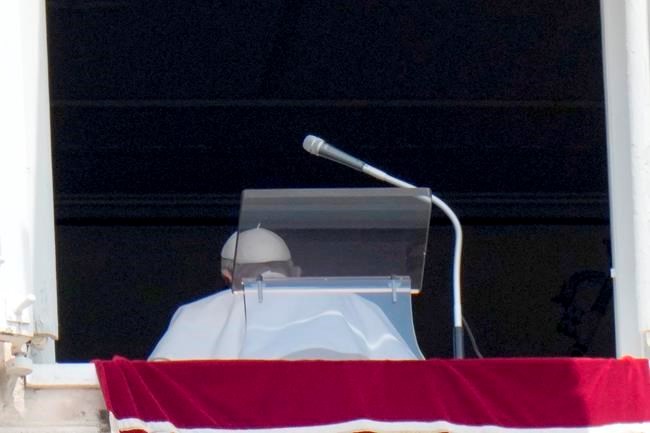VATICAN CITY (AP) — Pope Francis was hospitalized in Rome on Sunday afternoon for scheduled surgery on his large intestine, the Vatican said. The news came just three hours after Francis had cheerfully greeted the public in St. Peter’s Square and told them he will go to Hungary and Slovakia in September.
The brief statement from the Holy See's press office didn’t say exactly when the surgery would be performed at Gemelli Polyclinic, a Catholic teaching hospital, only that there would be a medical update when the surgery is complete. But the Vatican indicated later that the surgery would be the same day.
It was the pope's first known hospital treatment since he was elected to the papacy in 2013.
The Vatican said the 84-year-old pope had been diagnosed with “symptomatic diverticular stenosis of the colon,” a reference to a narrowing in the large intestine. The surgery was to be performed by Dr. Sergio Alfieri, the director of Gemelli's digestive surgery department.
A week earlier, Francis had used his same Sunday appearance to ask the public for special prayers for himself, which, in hindsight, might have hinted at the planned surgery.
“I ask you to pray for the pope, pray in a special way,” Francis had asked the faithful in the square on June 27. “The pope needs your prayers,” he said, adding his thanks and saying “I know you will do that.”
A diverticulum is pouch-like protrusion through the muscular wall of the intestine. When diverticula become inflamed — a common condition, especially in older people — a narrowing of that part of the intestine can sometimes occur, and surgery might be required, according to gastroenterologists. Such surgery can be performed under general anesthesia, possibly with a laparoscopic intervention. Sometimes a resectioning of the affected part of the intestine is needed.
Francis is in generally good health, but did have part of one lung removed as a young man. He also suffers from sciatica, in which a nerve affects the lower back and leg, a painful condition that has forced him at times to skip scheduled appearances.
A 10th-floor papal suite is kept available at the hospital in case of need.
While Church law provides for a prelate to take over the administration of the Roman Catholic Church if a pope dies, there is no known provision for a delegation of powers if a pope is temporarily incapacitated, such while under anesthesia.
The pope had a particularly demanding set of appointments last week, including celebrating a Mass on Tuesday to mark the Catholic feast day honoring Saints Peter and Paul, and later in the week, presiding at a special prayer service for Lebanon. On June 28, he also had a long private audience at the Vatican with U.S. Secretary of State Antony Blinken. Throughout all those engagements, Francis appeared to be in good spirits.
Get-well wishes began arriving immediately for Francis. Italian President Sergio Mattarella, as soon as h landed in Paris for a state visit in France, offered an “affectionate thought” on behalf of all Italians. Mattarella added that he was wishing for "a good convalescence and even a speedier recovery” for the pope.
Gemelli doctors have performed surgery before on popes, notably Pope John Paul II, who had what the Vatican said was a benign tumor in his colon removed in 1992. John Paul had several other surgeries at the hospital, including after being shot by a gunman in St. Peter's Square in 1981.
John Paul also had several medical issues in his final years, including severe complications from Parkinson's disease, and had numerous stays at Gemelli.
Frances D'emilio, The Associated Press



